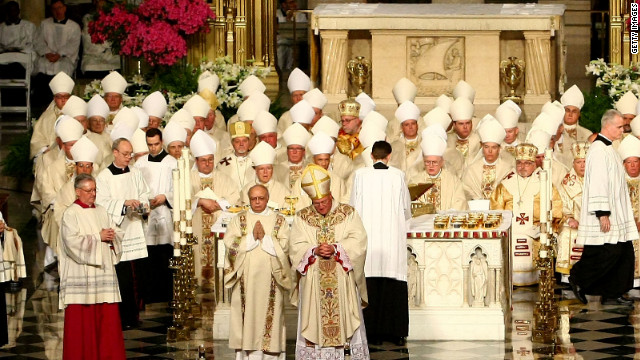Papacy is in the air – more than I like, so I am not going
to write about the Papacy, the problems with the Catholic hierarchy, or
anything else Cardinal or Pope related (how cool would it be if there was a
pope bird just like there is a cardinal bird?). Go are read some other angry
Protestant who can comfortably make a criticism of something from an outsider’s
point of view. Or maybe I will write about all that.
Someone asked me to share some thoughts on Mega churches. I
suppose I could do that, but hasn’t that been covered ad nauseam by others who are bitter and angry because their church
is struggling while the mega churches are growing? So I don’t think I really
need to comment on that (how cool would it be if there were birds named mega
church birds?). Or maybe I will write about all that.
How about instead I offer a comparison of the two and where
they both have gone astray? If that isn’t arrogant and snobby I don’t know what
is. And, this way I can do what I just said I wouldn’t do.
I have heard many say that a large part of the problem
facing Catholicism is a reluctance to change or compromise in light of the
modern world. For example:
Condoms can save lives (especially in AIDS torn countries),
but it is a sin to go against “God’s will” and have protected sex (at least
wear a helmet).
Women have proven themselves again and again to be very
capable leaders who are called by God, but we could never break with tradition
and let a woman actually fix many of the problems in the church.
The Holy Spirit can work from the bottom up, it can move for
change through the people prior to the hierarchy/magisterium (as Liberation
Theology argues), but we can’t trust such radical movements without any kind of
control.
There was a time (1965) when a pastoral constitution from
Catholicism claimed that the “hopes and joys of the world are the hopes and
joys of the church” (Gaudium et Spes),
but that does not seem to be the case today. It seems and feels like the
leadership of Catholicism has dug in the fancy red-shoed heels to be a bulwark
against the changing world so strong that the world may very well pass it by.
The Mega church model, on the other had, seems to be steeped
in the notion that if you give the people what they want then they will come –
thank you Rick Warren for that little nugget. People like television so show
worship on the TV. People like big displays of fanfare and feeling good so make
sure worship is big and makes people feel good no matter what. People like to
sit at round tables, drink coffee, and be “relaxed” in worship so make sure you
do that.
While Rick Warren and others say it is only the surface
needs that you speak to and then you offer the Gospel, I would argue that the
Gospel the majority of these churches is offering continues to be what people
want.
People want answers so we tell them what to think.
People want to hear that everything is going to be ok and so
we say it will be (as long as you give to the church).
People want to hear that they are blessed (financially) and
we tell them that they will be (as long as they give to the church).
People want to be told how to live, how to act, and what to
believe.
See, Nietzsche and Marx were right.
There was a time when the strain of theology that you can
usually find in the Mega church was found primarily in the smaller, rural
churches that refused to cow-tow to the trends of society (read: modernity and
liberalism). Now it seems that many of these churches are becoming so much like
contemporary culture that the difference between a brand new school and a brand
new church is that a church might have a cross displayed somewhere. Otherwise
you may never be able to recognize the difference.
Granted I am slapping grand generalizations and I am sure
people could say, “well my experience of Catholicism is different,” or “well my
experience of a mega church is different.” I’m sure it is, but this is my blog
so I can make my generalizations. Hah!
We need to find something in-between. I come from a classical
liberal background (via Niebuhr, Tillich, etc.) – a background that was very
good at bending to the will of culture. I am working to find a footing in the
Gospel against the currents of the world. Yet I do not want to become so
recalcitrant that I lose compassion, mercy, and love. It isn’t that the Gospel
is changing, it is that our understanding of the Gospel and the way we engage
the world as Christians is growing, maturing, and changing. This means that we
all may find ourselves at a place where we are saying that we may have been
wrong at one time or another (remember slavery?).
As ironic as it is that I am suggesting it, I believe that
we need to have a lot of humility when we are trying to do church stuff. We
need to have a lot of humility, a lot of honesty, and a lot of trust. Listen to
people, listen to the Holy Spirit, listen to Scripture, listen to Christ, and
then try to be a church. That is going to be a slow and sometimes painful
process. Maybe that is why it takes churches so long to make decisions on
things.


No comments:
Post a Comment